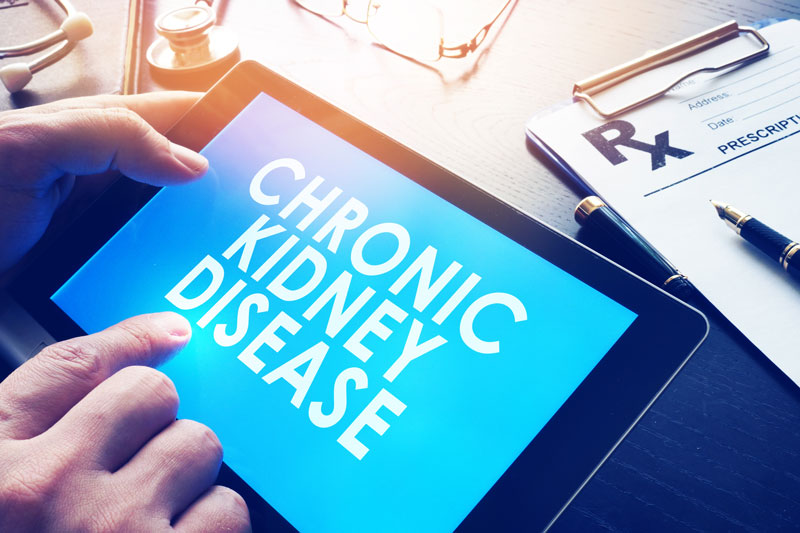Chronic Kidney Disease
“…even people with no history of kidney disease will slowly lose some kidney function over their lifetime.”
Our body generates a certain amount of poison daily. The main job of the kidney is to clean the blood and excrete that poison in the urine. When the kidneys are working well, the blood poison level is therefore very low. An increase in the blood poison level means there is some degree of kidney malfunction.
Creatinine is the most common poison to evaluate kidney function, measured on a routine blood test. The normal blood creatinine level is approximately 1.0 mg/dL; any increase above that level indicates some degree of kidney dysfunction.
Based on the blood creatinine, age, race, and gender, the glomerular filtration rate (GFR) can be calculated. The GFR is roughly equivalent to the percent of one’s kidney function. An individual is born with 100% kidney function (GFR 100 mL/min). Over a lifetime, the kidney function falls to approximately 60% (a GFR of 60 mL/min) by age 100. So even people with no history of kidney disease will slowly lose some kidney function over their lifetime.
An individual losing kidney function faster than this is determined to have Chronic Kidney Disease (CKD). By an arbitrary definition, CKD stage 3 is a GFR less than 60 mL/ minute, CKD stage 4 is a level less than 30 mL/minute and CKD stage 5 is a GFR less than 15 mL/minute. Most patients need a GFR above 5 mL/minute to avoid kidney dialysis.
To slow loss of kidney function, all patients with CKD receive therapy to control the blood pressure and decrease urinary protein loss. This is primarily with the use of angiotensin converting enzyme inhibitors (ACEI) or angiotensin receptor blockers (ARBs) (for example lisinopril or losartan). This therapy is greatly enhanced by a very low salt diet (1500 mg sodium daily). In addition, some patients require more specific therapy such as immunosuppressive agents. These treatments usually depend on the results of a kidney biopsy. Preventing deterioration of kidney function and avoiding dialysis is the main goal of all these therapies.
In addition to preserving kidney function, your nephrologist will also be concerned about other complications of CKD including anemia, malnutrition, bone and cardiovascular disease. At a minimum, these require attention to blood glucose control, cholesterol levels, iron levels, exercise and overall cardiovascular health.

